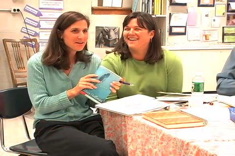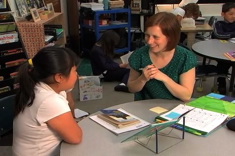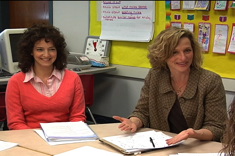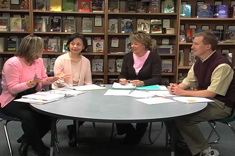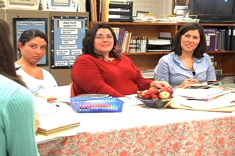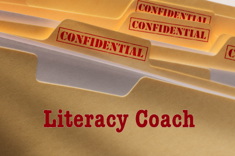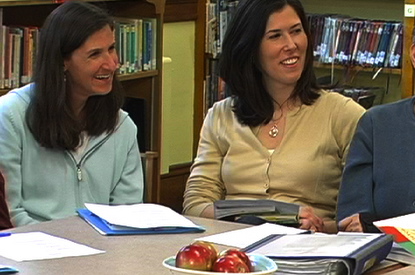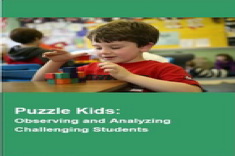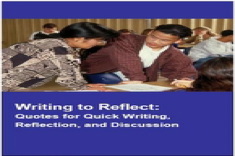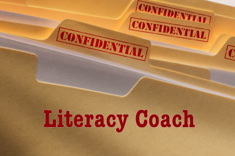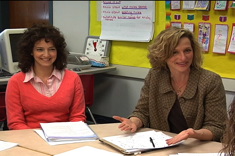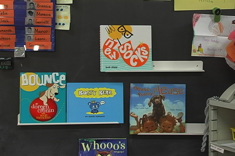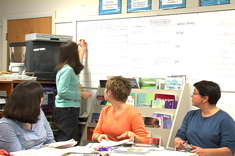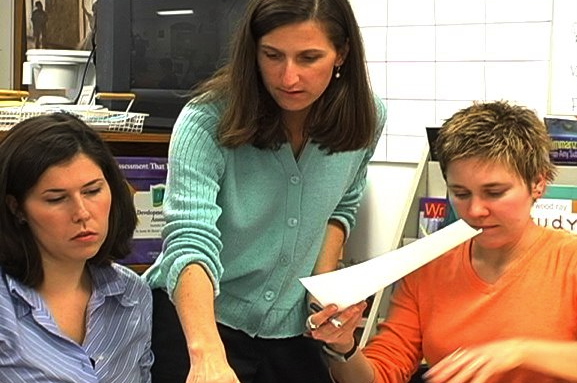Teacher Study Groups
Teacher study groups are as diverse as the teachers who participate in them. They can be an informal, low-key coffee klatch designed to relieve the daily stress of teaching. They can be highly structured inquiry groups, with detailed expectations for participants. Most study groups are likely somewhere between these two extremes, with colleagues getting together regularly to discuss books, view videos, and support each other as they test out new literacy instruction strategies in their classrooms. We include a few examples of study groups in the Choice Literacy library. If you regularly lead these groups, you'll want a membership that includes the Leaders Lounge. Here is where you will find advice from study group leaders who coordinate book groups, design workshop formats for groups, and develop structures for helping colleagues transfer the learning in study groups to the learning in their classrooms.
Latest Content
How Study Groups Are Like Self-Cleaning Ovens
With a few key elements in place, Brenda Power and Jennifer Allen explain how study groups can almost run themselves and get everyone involved.
Two or Three Things I Know for Sure: A Teacher Workshop Activity
"Two or Three Things I Know for Sure" is a terrific short workshop activity for study groups or faculty meetings, and it also can be used in partnership discussions with mentors, literacy coaches, and colleagues. The activity gets everyone to explore their bedrock beliefs about teaching – as well as what it takes to change them.
Books That Touch the Heart
Is it ever alright for a teacher to cry when reading aloud? Shari Frost and her colleagues select their favorite tearjerker read alouds, and what they’ve learned from sharing them with students.
Collecting Stories: Opening Activity and Icebreaker (PRINT DOWNLOAD)
Ruth Shagoury’s collecting stories icebreaker is a fun yet thoughtful activity for opening a meeting or all-day professional development event with energy and reflection. It gets everyone moving around the room, talking with colleagues, and best of all, focused on students and curriculum.
“Hard” Reading Workshop: Understanding How Proficient Readers Comprehend Difficult Text
The Hard Reading Workshop is a terrific professional development activity for launching conversations about text difficulty and strategy instruction.
New Teacher Conversations: Breaking Through Roadblocks and Sustaining Support
The roadblocks activity can easily be adapted for study groups looking at almost any topic.
Memorable Moments: Two Quick-Write Closure Activities for End-of-the-Year Study Groups and Staff Meetings (TEMPLATES)
Here are two quick and reflective activities for closure at the end of the year.
Last Words and Next Steps: Closure Activities for Study Groups and Mentoring Programs
Here are some quick closure activities to help you finish out the last study groups and meetings with colleagues on a high note.
The Anticipation Guide: A Tool for Study Group Leaders
Suzy Kaback finds the Anticipation Guide is the “little black dress” of study group and staff development leaders, taking any literacy leader seamlessly from the classroom to PLCs and faculty meetings.
Literacy Chats: An Open Discussion Format
Literacy coach Pam Hahlen discusses the value and format of monthly “literacy chats” for teachers.
Case Studies in Professional Learning Communities
In this brief video, Literacy Coach Pam Hahlen and Principal Karen Szymusiak meet with two teachers in a professional learning community group to discuss ongoing case studies.
Data Cards: Assessment Profiles at a Glance
“Data cards” are ingeniously designed to allow an entire grade-level team to look at the reading levels of all students in the grade. In this four-minute video, “The Sisters” (Gail Boushey and Joan Moser) explain how they work.
Collaborative Team Meeting: Assessing and Planning Together
Gail Boushey leads a collaborative planning meeting between 4th grade teachers, literacy coaches, and the principal early in the year.
Quick Take: Protocols for Teacher Study Groups
In this three-minute Quick Take video, Clare Landrigan describes the teacher study group protocol she uses to foster shared understanding and allow for differentiated learning among teachers.
Opinion Exchange (E-GUIDE)
How can quotes lead educators to awareness and acceptance of the diversity of opinions in a group? Discover what this format for discussion has to offer your study group or staff.
Assessment and Curriculum Mapping
In this video from a new teacher study group for grades 3-5 teachers, Jennifer Allen demonstrates how teachers can use assessment data to develop instructional plans for individual students and create curriculum maps for an entire class of students.
Teacher Study Group: Writing Focus
In this video of a teacher study group, Jennifer Allen leads a group of grades 3-5 teachers as they launch their monthly meeting in October.
Literacy Coach Confidential: What Can I Do About Poor Attendance at My Study Group?
When attendance drops in study groups, here are some ways to get it back on track (or take a new direction entirely).
Boosting Attendance at Study Groups
Brenda Power shares advice from teachers that are building and maintaining inquiry study groups with adults.
Planning a New Teachers’ Professional Development Program
Jennifer Allen maximizes resources as she plans for a monthly professional development group for new teachers.
Puzzle Kids: Observing and Analyzing Challenging Students (E-GUIDE)
This E-Guide provides teachers with a tool to analyze children who need additional observation and analysis to create successful learning opportunities.
Writing to Reflect: Quotes for Quick Writing, Reflection, and Discussion (Download)
This downloadable guide includes 10 different quotes from a range of educators, activists, authors, and innovators for reflection at all times of the year.
The Dog Ate My Study Group Plans! Four Instant (and Fun and Reflective) No-Prep Teacher Workshops (E-GUIDE)
This e-guide provides tried-and-true workshops plans for educators in need of energy and encouragement.
Literacy Coach Confidential: Some Study Group Participants Aren’t Reading the Book
Have you ever experienced the strange phenomenon of colleagues who show up for book study groups and gab away, even though they haven't read the text? You may be a victim of "bullcrit" – the willingness of some people to critique movies they haven't seen, music they haven't heard, and books they haven't read.
Four Essentials in Designing Professional Development for Literacy Leaders
While clever activities for adult professional development are fun, what really helps colleagues become more competent and sensitive to classroom and school needs? Franki Sibberson knows what her colleagues need and gives it to them.
Charting the Course: A Yearlong Professional Development Plan for New Teachers (SCHEDULE)
Planning with the end in mind is essential for literacy leaders. Jennifer Allen takes us through her process for creating a focused and progressive year-long plan.
Planning for a Year of Author Studies (TEMPLATE)
Meaningful reading, writing, speaking, and listening comes out of thoughtfully planned author studies. Gayle Gentry shares her thinking and planning.
Launching Teacher Study Groups: Guidelines and Resources
Jennifer Allen’s years of experience with teacher study groups has led her to best practices that make it “safe and easy” for teachers to learn from each other.
Keeping It Simple: Reflections on the December New Teachers Study Group
What is really important for our time and energy? Jennifer Allen reflects on words of wisdom that keep her centered as a literacy coach.
Layered Support: Meeting the Needs of Beginning Teachers
Jennifer Allen reflects on essential layers that provide a safety net for the challenges facing beginning teachers.
Browse Content By
Type
Category
- Assessment Tools
- Big Fresh Archives
- Booklists
- Choice Numeracy
- Classroom Design
- Common Core
- Community Building
- Conferring
- Content Literacy
- Digital Literacy
- English Language Learners
- Equity
- Family Relations
- Free Samples
- Guiding Groups
- Leadership
- Literacy Coaches
- Mentor Texts
- Minilessons
- New Teacher Mentors
- Podcasts
- Poetry
- Quote Collections
- Reading Strategies
- Self Care
- Struggling and Striving Learners
- Talking and Listening
- Teacher Study Groups
- Teaching Reading
- Teaching Writing
- Word Study and Vocabulary
Author
- Melissa Quimby
- Nawal Qarooni
- Gwen Blumberg
- Julie Cox
- The Lead Learners
- Hannah Tills
- Josie Stewart
- Ruth Metcalfe
- Mallory Messenger
- Becca Burk
- Jodie Bailey
- Vivian Chen
- Mary Brower
- Tiffany Abbott Fuller
- Stephanie Affinito
- Ruth Ayres
- Leigh Anne Eck
- Heather Fisher
- Shari Frost
- Julie Johnson
- Suzy Kaback
- Gigi McAllister
- Shirl McPhillips
- Melanie Meehan
- Cathy Mere
- Debbie Miller
- Tara Barnett and Kate Mills
- Tammy Mulligan
- Dana Murphy
- Bitsy Parks
- David Pittman
- Brenda Power
- Heather Rader
- Matt Renwick
- Mandy Robek
- Christy Rush-Levine
- Gretchen Schroeder
- Jen Schwanke
- Brian Sepe
- Katherine Sokolowski
- Stella Villalba
- Jennifer Vincent
Grade Level
Choice Literacy Membership
Articles
Get full access to all Choice Literacy article content
Videos
Get full access to all Choice Literacy video content
Courses
Access Choice Literacy course curriculum and training

